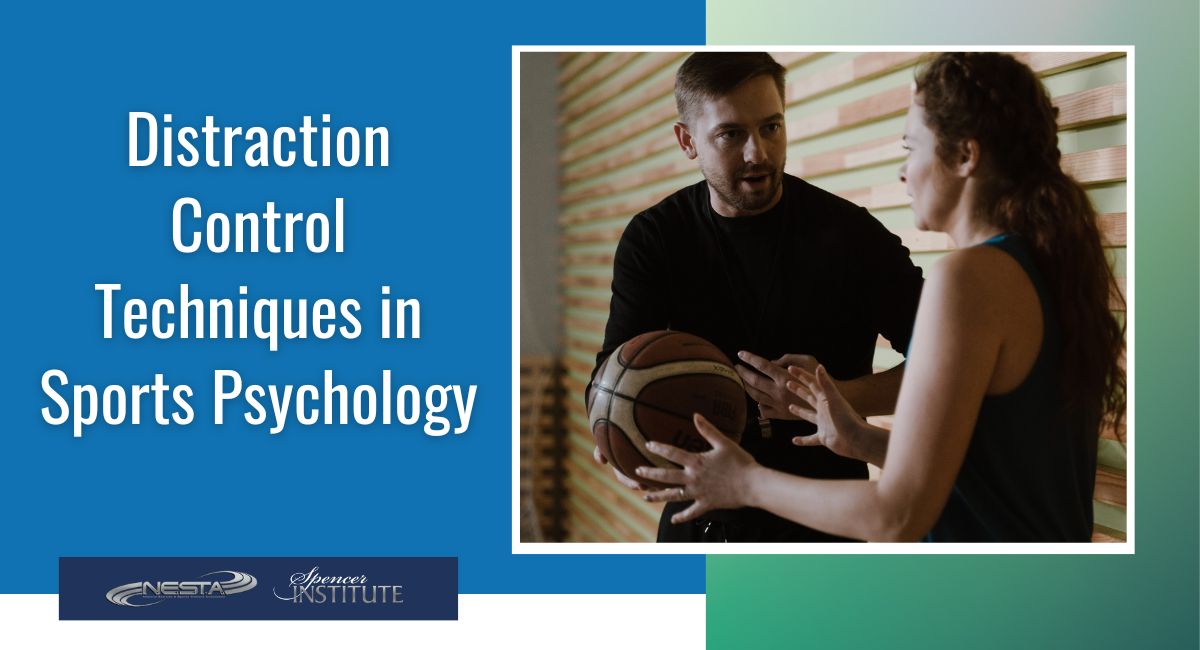
How Can Athletes Overcome Distractions?
A Certified Sports Psychology Coach helps his or her client by maximizing the mental aspect of sports and fitness performance. There are many aspects to the mental game of world-class excellence. One important component is to reduce distractions. It’s critical to stay single-mindedly focused on the task at hand, the highest level of performance, and victory.
Distraction control is an essential aspect of sports psychology that aims to help athletes stay focused and maintain their concentration on their performance. Distractions are common in sports and can come in various forms, such as noise from the crowd, visual distractions, and personal thoughts. Simply having a busy personal life, and even traumatic or exciting events taking place outside of your sport of choice can cause significant distraction and therefore reduce performance and enjoyment of training and competition.
Distractions can come from both internal and external factors. Internal distractions arise from an athlete’s thoughts, emotions, and physical sensations. For example, anxiety, worry, and negative self-talk can distract an athlete from their performance. External distractions come from the athlete’s environment and may include noise, weather, and other players’ actions. For instance, a loud and enthusiastic crowd can be a significant source of distraction for an athlete. In other instances, a noisy crowd can give the athletes energy and increase performance. It’s a matter of conditioning and interpretation of the stimulus.
Distraction Control Techniques in Sports Psychology
Distraction control techniques are designed to help athletes manage both internal and external distractions.
Visualization: One of the most common techniques used by athletes is visualization or mental imagery. Sometimes this is referred to as mental motor rehearsal. Visualization involves creating mental images of successful performances and rehearsing them in the mind. This technique helps to improve an athlete’s focus and confidence, which can reduce the impact of external distractions. Another aspect of increasing focus and confidence is to first improve relaxation. This allows for the other aspects of performance to be enhanced.
Breathing Exercises: Another technique used by athletes to control distractions is breathing exercises. Breathing exercises involve taking deep breaths and exhaling slowly to reduce stress and anxiety. These exercises help to calm the mind and body, which can reduce the impact of internal distractions.
Self Talk: A third technique used by athletes is self-talk. Self-talk involves using positive and motivational statements to encourage oneself during the competition. Positive self-talk can help an athlete stay focused on their performance and reduce the impact of internal distractions such as anxiety and worry. Ultimately, we become what we say to ourselves most often.
What are the Benefits of Limiting and Controlling Distractions?
Distraction control techniques can be used in combination to help athletes stay focused and maintain their concentration during competition. For example, an athlete may use visualization to mentally rehearse their performance, use breathing exercises to calm their nerves, and use positive self-talk to maintain their focus. As a Certified Sports Psychology Coach, these are the things that you will help your athlete master to improve their performance and overall well-being and enjoyment of their activity.
External Distraction Control Methods
Athletes can also use distraction control methods to manage external distractions.
Block Out Distractions: One of the most effective methods is to block out distractions. Blocking out distractions involves reducing an athlete’s exposure to external stimuli that may interfere with their performance. For example, an athlete may use earplugs to block out noise from the crowd or use sunglasses to reduce the impact of visual distractions such as bright sunlight.
Focus on Performance Cues: Another method used by athletes to manage external distractions is to focus on their performance cues. Performance cues are specific actions or behaviors that an athlete uses to maintain their focus on their performance. For example, tennis players may focus on their footwork to maintain their concentration during a match.
Managing the Environment: Athletes can also use distraction control methods to manage their environment. For example, an athlete may choose to compete in a less distracting environment or adjust their warm-up routine to reduce the impact of distractions.
Why Do Athletes Get Distracted During Competition?
There are several reasons why athletes get distracted during competition. One of the most common reasons is anxiety. Anxiety is a natural response to competition and can cause an athlete to lose focus and concentration. Athletes who experience high levels of anxiety may benefit from techniques such as visualization and breathing exercises to reduce the impact of anxiety on their performance.
Another reason why athletes get distracted is fatigue. Fatigue can reduce an athlete’s ability to concentrate and maintain their focus on their performance. Athletes who experience fatigue may benefit from techniques such as rest and recovery to reduce the impact of fatigue on their performance.
External distractions such as noise and visual distractions can also cause athletes to lose focus and concentration. Athletes who experience high levels of external distractions may benefit from methods such as blocking out distractions and focusing on performance cues to maintain their concentration.
Sports Psychology Coaches have endless opportunities to work with athletes ranging from beginning to professional and all points in between. There are no limits to what is possible for your career! Click here to get started and learn more about starting a career as a Sport Psychology Coach.
Our stress management coaching program is designed for life coaches, as well as fitness and wellness professionals who want to expand his or her knowledge in the lucrative and expanding field.
Another certification that you will want to check out is the Mind Body Fitness Coach Certification. This course is also science-based and also includes more of an experiential, holistic and “organic” approach to mental wellness through movement.
Remember, our programs are open to anyone with a desire to learn and help others. There are no prerequisites.
That’s it for now.
Take action!
PS: Click here to see many helpful business/career resources










